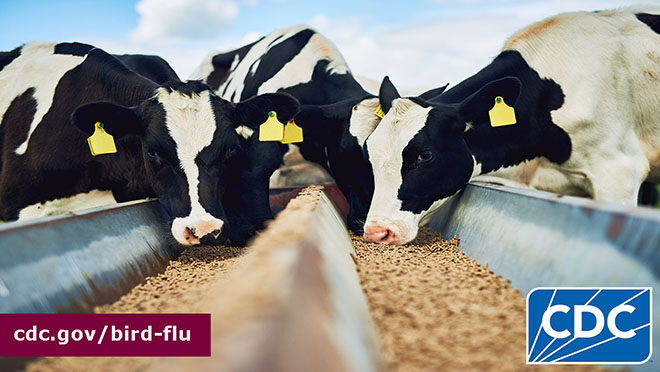
TULARE COUNTY, Calif. (KMJ/KFSN) – The state of California has seen a total of 22 confirmed cases of Bird Flu in humans since the first positive test this summer.
Western United Dairies oversees over 90% of dairies in the state.
They say they’ve seen just under 280 dairy farms with positive cases in cows.
Many more dairies are currently undergoing testing.
The company believes there are approximately 100 more that are presumed positive.
“Unfortunately, bird flu does continue to spread at a very high rate of infection amongst dairies in California. It is a lot less dramatic than it was at the beginning of October because we have a lot less heat,” says Anja Raudabaugh, the CEO of Western United Dairies.
She continues, “The heat was really causing the cows to not be able to withstand this virus. But now that it’s gotten much cooler, the animals are generally recovering from this.”
Anja says dairies who are under quarantine are testing their employees.
Employees get up to 5 paid sick days.
State-wide efforts have been focused on educating employees and tracking the virus.
“Bulk milk tanks are being tested in California. That is something that’s significantly different from other states. So we’re finding more. But we’re also looking for more,” Anja mentions.
Although it is still unknown how the virus spreads, some findings suggest, “For humans, it’s the raw milk, the raw milk particles that are communicating it to the eyes; for the cows, it’s definitely respiratory, which means they’re definitely aerosolized particles in the air,” Anja explains.
At this time, it’s unknown if people can spread the virus to others.
However, those working directly with infected cows are at higher risk.
“The symptoms do continue to be mild. We haven’t had any hospitalizations. The main symptom that we’re seeing is conjunctivitis or eye redness,” says Thomas Overtun, a Deputy Health Officer at Tulare County Public Health.
The Tulare County Farm Bureau says the virus has impacted milk production for infected cows, and dairies are still bracing for the peak in cases.
“Adding the bird flu into the mix of an already difficult economic time with inflation as bad as it is. It’s just an unfortunate situation, but I do believe that our California Dairy farmers do the very best job they can,” explains Tricia Stever Blattler, the executive director at Tulare County Farm Bureau.
County and state leaders encourage dairy workers to utilize personal protective equipment, such as N95 masks, gloves and goggles, to prevent the virus from spreading.
It is also important to note that regular dairy products you buy at the store are okay to consume as the pasteurization removes bacteria.






